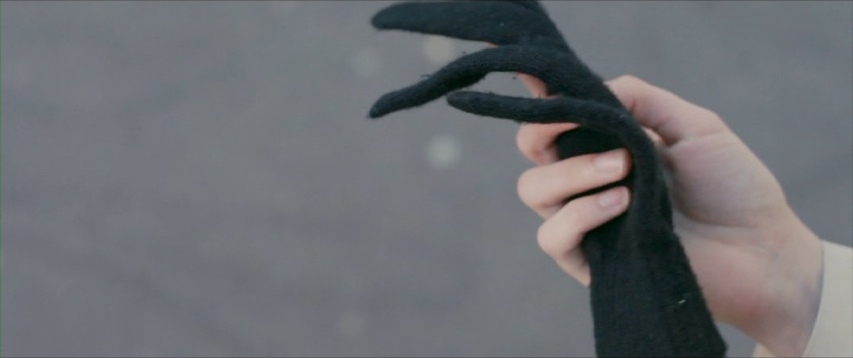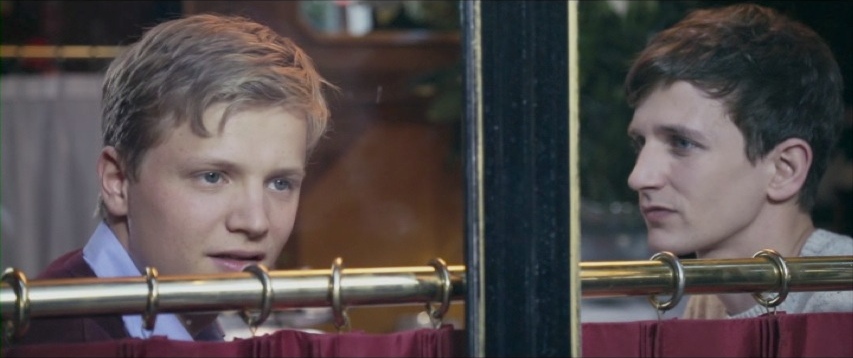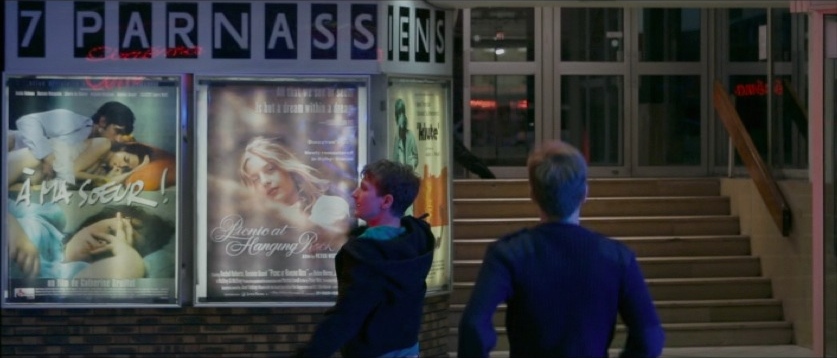« The Chase | Main | Coffee Break »
May 25, 2016
Fever

Raphael Neal - 2014
Artsploitation Films Region 1 DVD
What makes Fever a significant break from the various films inspired by the Leopold-Loeb murder case is that it is an attempt to put the crime into a far bigger philosophical context. I'm not familiar with Leslie Kaplan's novel, though I assume that most of the ideas explored in Raphael Neal's film originated there. Neal, an actor making his directorial debut, co-wrote the screenplay.
The two young men here are younger, both French high school seniors, inspired by flimsy philosophy. The victim is a prostitute. The murder is never shown. We are introduced to the two boys, Pierre and Damien, as they run downstairs and onto the Paris sidewalk. Pierre bumps into a woman along the way, and drops a glove. The woman, Zoe, an optician, picks up the glove. Following news reports and some neighborhood talk, she suspects that Pierre and Damien are the suspects sought by the police.

Neal cross-cuts between Damian's upper class, brightly decorated home, and Pierre's family, more people in a smaller, somewhat dingy apartment. At school, Hannah Arendt's book on Adolf Eichmann. It is eventually revealed that Damian's grandfather was a functionary during World War II for the Vichy government, who helped in the process of the expulsion of French Jews. Pierre's grandmother was sent to a camp. From this point, the film is primarily an exploration of Arendt's ideas of the "banality of evil" as it applies not only to those who supported the Nazis either by action or inaction, but how it manifests in contemporary society.
What's not clear is the connection to the song made famous by Peggy Lee, played at one point in Damian's house, and performed at a concert by Camille, who provides the film's soundtrack. More to the point as pop culture references is when Pierre and Damien pass by a a theater with posters for A ma soeur, Picnic at Hanging Rock and Klute, collectively films where the death and disappearance seem to be random. From what I have read about the novel, it goes into greater detail concerning how Pierre and Damian respond to the historical events that have had a personal impact, as well Kaplan discussing the questions of personal and collective responsibility. At this time, Kaplan's novel is not available in English translation.
There's perhaps more philosophy than can be fully expressed within a film that runs less than ninety minutes. Some of the ideas discussed here, though, make Fever extremely timely, not only considering some of the recent activity in France, but in the United States as well.

Posted by Peter Nellhaus at May 25, 2016 03:02 PM
